Brian Barrett – ThinkBank
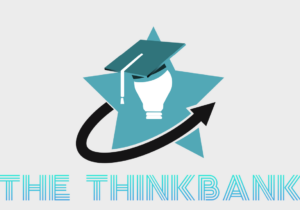
The Think Bank is an executive functioning skills course with ten modules targeting secondary school students in 9th-12th grades. The course modules will focus on non-academic topics reflecting on skills lost as the student progresses from primary to secondary school. Data from Greatschools.com shows that many students are unprepared for higher levels of learning after high school, and the limitations significantly impact the school’s overall ratings. The Thinkbank helps prepare students for the challenges of academic and social learning. By rebuilding a foundation of skills, learners are motivated to take on and complete academic assignments. The modules are as follows: Introduction to the executive functioning skills, planning, organization, task initiation, working memory, attention, flexibility, and self-control. In the modules, students will watch video content, complete exercises, and writing prompts to develop soft skills and begin to apply them to current situations immediately. Completion of the course will earn students a certificate of completion. Students will work through the modules on the Canvas LMS platform.
Ron Bush – Increasing Underserved Student College Success through Digital Literacy
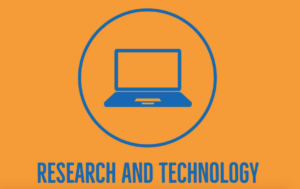
According to a study by Tang & Chaw, digital literacy is needed to help student learners build skills such as self-efficacy and self-directed learning in blended courses to be successful. EducationWeek Resource Center analysis found that the digital divide in affluent schools compared to high-poverty schools is significant. This course, Introduction to Technology and Research’s goal is to introduce students, specifically in Title 1 schools, to basic college readiness computing skills who may never be exposed to such content due to limitations with budget or content experts in order to help students build their own digital literacy. This course’s content will include touch typing, word processing, online research / source validation, writing research papers in MLA format and presentations. Students will experience the basic understanding of creating and manipulating content in these mediums by creating and modifying sample documents and presentations to learn how these skills connect to the real world application. They will then choose and engage with subjects that are relevant to a potential course of study by researching a topic. Through the research process students will learn and be able to identify the importance of source analysis and properly crediting sources in their research. Students will be interacting with these interests in a digital space to create a final product that includes a research paper and presentation that they can use in a portfolio. The end goal of the course is to build capacity in students to independently research a topic that interests them and have them find credible online sources to write an MLA formatted paper. They will then be able to transform that paper into a presentation using multimedia elements to communicate their findings, much like they would do in an undergraduate program.
Yeeva Cheng – No Shame: A Menstrual Health Curriculum

No Shame: A Menstrual Health Curriculum is a 10-module, asynchronous course covering the knowledge, hygiene practices, and skills for menstruators to use as they prepare for menarche and/or learn to manage their menstrual cycles. Acknowledging that those identifying as non-binary or transgender may also experience menstruation, we use the term “menstruators” to include all learners who may directly benefit from this curriculum.
The motivation for this course is to meet the needs of menstruators and fill a global curricular gap. While at least half of the global population experiences menstruation, the coverage of menstrual health curriculum is often limited and varied by geographic and cultural context. Where it does exist, curriculum is often not gender-responsive or culturally responsive, thus limited to anatomy-based explanations without addressing social, cultural, socioemotional and physiological challenges (WASH United, 2021; MHDay, 2021). Though there are menstrual health guides in digital and print form, these do not feature engaging materials such as videos, formative quizzes, interactive diagrams, and discussion boards. Finally, existing materials often limit language to girls and women, excluding the experiences of trans and non-binary people, which will also be addressed in the course.
The learning objectives of this course are for learners to be able to explain the menstrual cycle, list strategies to manage their cycle, make decisions about a management material, discuss global cultural taboos or social norms about menstruation, and articulate how menstrual hygiene education relates to empowerment and agency.
Students can look forward to creating learning artifacts including a menstrual cycle tracker calendar, an anatomy diagram, co-created strategies and tips for social navigation (i.e. help-seeking or combatting bullying), a personalized guide to managing one’s cycle, and written reflections on the relationship between menstruation education and self-advocacy. The instructional design will largely draw upon self-regulated learning theory.
Alex Conte – Understanding the Math Learning Game Industry
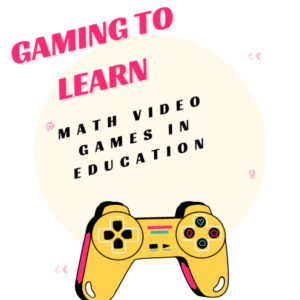
The number of computers in the classroom has increased dramatically in the past ten years. As a result, students now spend a a significant amount of time learning curriculum on their computers, and a vast number of digital resources have been created to meet consumer demand. One of these areas is online math learning games. In theory, these math games are effective teaching tools because they are more interactive and engaging to students. However, these games can often distract students from the ultimate goal of learning math curriculum.
In this report, the industry of math learning games will be introduced and the overall market examined. Specifically, the paper will look at the growth of the industry, its history, and current trends in the marketplace. From there, the report will turn its focus to Prodigy, a company that produces and develops these games, and it will address Prodigy’s strengths, weaknesses, opportunities, and threats. Additionally, it will summarize the literature surrounding the effectiveness of these games in the classroom in order to better direct the design of future math games in order to maximize student learning. The report will conclude with recommendations for Prodigy to grow its market share.
Sanji Datar – Digital literacy for Adult Learners
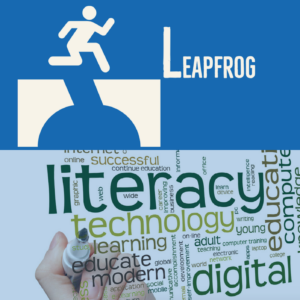
This project will explore digital literacy to bridge digital divide, within the context of Adult Lifelong Learning. Digital literacy bundles many abilities and skills beyond access to digital technology and possession of basic digital skills. Technology has transformed many facets of our lives such as education, job search, access to medical records, and voter registration. Our reliance on technology to perform day-to-day tasks has further widened the digital divide between technology haves and have-nots. Increasingly, digital literacy is at the foundation of the academic skills, technical expertise, and employability skills that individuals require to be college and career ready.
This report will begin with an overview of the digital literacy education ecosystem, which includes employers, policymakers, adult education providers, and tech companies. The overview will summarize this ecosystem’s history and trends and focus on the digital opportunity gap in North Carolina. The report will then profile and evaluate Project Kitty Hawk, a nonprofit ed tech startup that was launched in January 2022 to serve traditionally underrepresented adult learners in North Carolina through partnerships with 16 universities of the UNC system. Finally, the report will present recommendations and future considerations for project Kitty Hawk.
Jeremy Dickerson – ED TECH Confidential – Leadership Lessons from Inside the Field
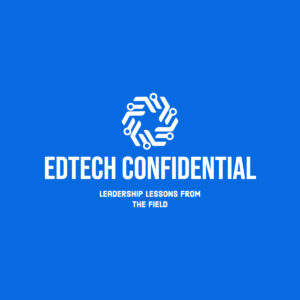
With universities investing and growing their capacities around educational technologies, leaders in this area need support when they begin in these roles. This online course will draw from the instructor’s four-year experience as an ED TECH leader in higher education, concentrated into specific topics and lessons. These topics and lessons will focus on hidden leadership issues – politics, processes and positions – that affect ED TECH leaders. These politics, processes and positions are unique to the higher education landscape, and they heavily influence decision making, effectiveness and overall success of the ED TECH leaders. The intended audience for this course is instructional designers and instructional technologists who work in higher education and are seeking to ascend to higher levels of leadership within university administrative structures. Students will engage with the content through case studies, examples, interviews and assignments that expose them to previously undiscovered topics while honing their leadership skills, methods and techniques. There will be ten learning modules in this course, each module will focus on a specific topic.
Rebecca Elliot – Clinical Education Assessment Publishing
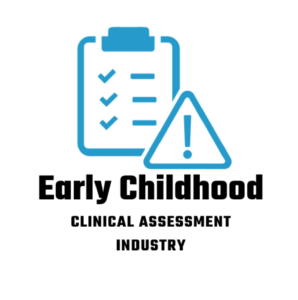
Abstract of your project: Education publishing has been around for hundreds of years. Top education publishers in the U.S. market, like Pearson Publishing and Houghton Mifflin Harcourt, have been publishing resources for teachers and students since the late 1800s and early 1900s. This industry has adapted to many changes throughout the years, the largest being the technological revolution. This market study will focus on the clinical assessment education publishing industry in the early childhood sector. These assessments have become a main source for educators and parents to track teacher effectiveness, monitor student learning progress, screen for student needs, and diagnose students with disabilities for special education services. This report will first provide an overview of the publishers in the clinical assessment space and then profile Riverside Insight, a company that is in the clinical assessment business and has adjusted their tests in response to both market pressures and the impact of technology in education.
Erica Harreveld – America During the Crash, Depression, and New Deal
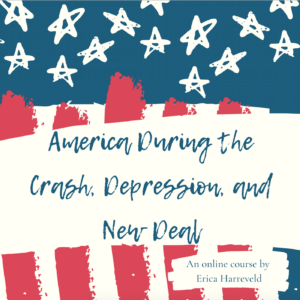
“History doesn’t repeat itself, but it often rhymes.” This quote by Mark Twain encapsulates both the spirit of studying history and the goals of the online course, “America During the Crash, Depression, and New Deal.” In today’s secondary social studies classroom, teachers and students are often more focused on meeting state standards than spending time on making connections between historical and current events. However, students can more clearly understand the events of the past if they can relate those events to the present. Hosted on Google Classroom, this 10-module online course will cover historical content related to the stock market crash of 1929, the causes of the Great Depression, and Franklin D. Roosevelt’s attempt to halt the effects of the Depression through his New Deal platform. As students move through the course content chronologically, themes related to racial and gender issues will be highlighted in tandem with the political, social, and economic histories of the era. In order to help build students’ historical critical thinking skills, students will study primary source documents related to this era and make connections to the modern day, particularly how the US handled the outbreak of COVID. Students who participate in this online course will be offered an engaging deep-dive into the Depression era while also building their historical reading and writing skills.
Paige Hofstad – Revolutionizing Financial Aid Literacy and Simplicity for College Students
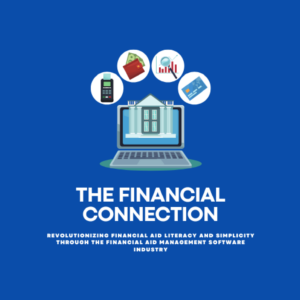
Being accepted into a post-secondary educational institution is only part of the process when making an informed college decision about which institution to attend. As the cost of tuition continues to increase, many first-time, full-time undergraduate students at these institutions receive financial aid. When making these financial decisions, students and parents rely on quick and clear financial aid terms and conditions to finalize their college choice, with 86.4% of students receiving aid (2019-2020) to help pay for or subsidize their education. This report will explore how financial aid management software has revolutionized the college enrollment and retention process. Specifically, it will provide a historical overview of these types of software, including how they were developed, how they are being used, the amount of funds they loan students, and the revenue they produce. This report will then conclude with an analysis of Workday Financial Aid, an online financial aid management software. Workday is a single system of record and engagement that enables students and administrators to manage all aspects of the financial aid lifecycle, and it is designed to simplify the complex world of financial aid. This analysis will focus on the platform’s current strengths, weaknesses, opportunities, and threats followed by recommendations for its continued growth.
Jasmine Johnson – Online Educational Video Industry

YouTube is a powerful platform for the distribution of content. Many educators have taken advantage of the plethora of educational content on YouTube to support their students. A Pew research study in 2018 discovered about 51% of YouTube users engage on the platform for education. The content in which users learn ranges broadly. Even with such a dominant presence of educational content on the platform, there is no clearly defined rubric or sources that provide evidence of educator (peer) review.
Children content creators have dominated the educational video sector, but most are not trained educators. Content targeted for children’s viewers is one of Youtube’s most lucrative incomes which inspired the sub platform “YouTube Kids”. 81% of parents claimed to allow their children to watch videos on YouTube and 31% of parents report their children are on the platform “regularly”. The goal in profiling Youtube’s educational content is to define if and how the videos are effective for learning or if they are purely designed for entertainment.
Jianing Liang – Deep Focus: Cultural Insight Through Film’
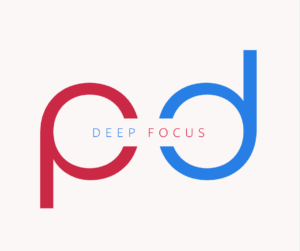
In an increasingly globalized world, we are constantly experiencing and interfacing with other cultures. While exciting, this also creates the potential for increased misunderstanding due to a lack of relevant cultural knowledge. Sometimes these misunderstandings are comical or trivial, but other times they have real-world or even geopolitical consequences. As someone who navigates this East/West divide every day, I would like to help my international friends better understand Chinese history, politics, and culture through the medium of film. Students who complete this course will improve their proficiency in the following areas-
1) Engaging with foreign source material
2) Contrasting domestic vs. international portrayals of popular cultural topics.
3) Empathizing with different cultural perspectives and understanding why such differences exist.
4) Having fun while learning (Learning should be fun!)
Steven Llewellyn – The College Admissions Industry and Its Possible Disruption
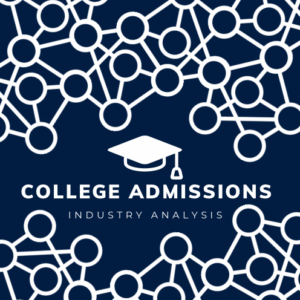
The college admissions process was created to solve the same issue as many industries: “Who should I trust?” The college admissions industry has an interesting history in the search for how to accurately answer that question. The methods of trust that this history has created are the diploma, unit requirements, grade point average, and standardized testing.
Today, the college admissions industry has many facets of a complex system. There are vague and opaque processes, political controversies, illegal scandals, racial and financial advantages, and a loss of trust in the system that make this industry a debated topic amongst its stakeholder groups of students, advisors, and parents/guardians, among others.
IMS Global is a consortium with many tools that can be applied to create a deeper trust of credentials than is currently being used and that allow for improved innovation in K12 and higher education as well as lifelong learning. IMS Global has some great strengths as well as opportunities to disrupt the current methods, and if those opportunities are seized, IMS Global has the chance to rebuild the trust needed in the college admissions industry.
Savita Madan – A Shot in the Dark

There is a unique opportunity to create an informal learning environment for science, technology, reading, engineering, arts and mathematics (STREAM) topics that also serves as a food and beverage venue. This venture is a novel approach to bolstering creativity and enthusiasm for interdisciplinary STREAM learning by combining research-based, constructivist pedagogy with the accessible, social environment of a café to promote equity and interest in education. These spaces often represent one’s community, values, and can foster invaluable experiences. Because food and beverage spaces are considered relatively comfortable and accessible spaces, they are already equipped to bring educational tools to the community, rather than expecting our community members to navigate the various barriers that may prevent them from entering strictly educational environments. This venture will be tailored to serve young adults (18-30 years old) because individuals within that age group are typically exploring higher education or entering the work force, and they will benefit from access to the resources provided by this venture. My MVP will be a website, with complete ‘menus’ of crafts, exhibits, and services as well as a developed business plan. This MVP will showcase the goals of this venture, which are to create an accessible and equitable learning environment capable of fostering a fondness for STREAM topics in older learners.
April McKinley – Collaborative Alliance
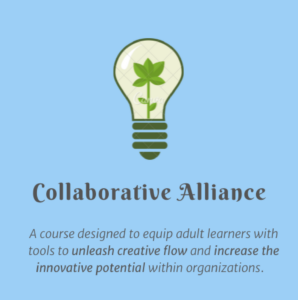
From classrooms to boardrooms from think tanks to shark tanks, innovators are everywhere. Sadly, many future innovators and innovative teams are tethered to the weight of ineffective group settings and their ideas never get off the ground due to the inability to collaborate. Collaborative Alliance is here to help adult learners in corporate and higher educational settings unleash their true potential by equipping them with the tools necessary to effectively coordinate, create and collaborate. Our 10-module asynchronous course is grounded in learning theories such as Sociocultural Theory, the Collective Working Memory Effect of Cognitive Load Theory, and Distributed Cognition Theory. We also tap into books such as Group Genius and employee satisfaction reports such as the 2021 LinkedIn Learning Workplace Learning Report, highlighting the effectiveness of collaborative learning spaces that lead to increased engagement, greater success and an overall sense of belonging. Collaborative Alliance takes a different approach to costly online paid offerings or expensive in-person training by offering a free, self-guided course designed to teach individuals how to effectively collaborate in group environments. Learners will evaluate case studies, take part in video practice sessions with peer feedback and create individualized support tools to make future collaborative group environments more successful and innovative.
Taylor Moreno – An NIL Education & Networking Tool for Collegiate Student-Athletes
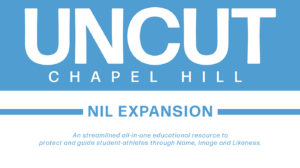
On July 1st, 2021, the landscape for college athletics drastically changed with the NCAA’s modification of their Name, Image, and Likeness (NIL) policy. This policy change now allows collegiate student-athletes to financially benefit from their athletic abilities and social presence. However, with nearly 500,000 student-athletes across three collegiate divisions, the challenge they currently face is how to navigate this space on their own without risking their eligibility. UNCUT NIL Expansion will serve as a free, all-in-one education and networking app to streamline the NIL process for student-athletes. By reducing the risk of an NCAA violation, student-athletes can be confident they are not risking their eligibility. In streamlining the process, it would drastically improve the convenience of access to information and resources about NIL by housing it all in one platform, which saves student-athletes both time and energy. UNCUT NIL Expansion’s goal is to improve the over NIL experience for student-athletes without adding pressure on them for having to rely only on their respective institutions for that information and guidance.
Jaelynn Murray – JV Basketball Coaches Learning How to Teach the Game of Basketball
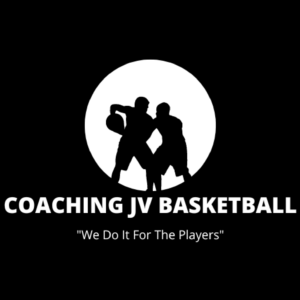
With the game of basketball growing rapidly, it is important that the sport’s youngest players are developing their skills the right way and ensure that they are being prepared for success. To be a coach, individuals must be smart and be able to know the ins and outs of the game along with what it takes to be great. Coaches also must be able to bring out the best in a player and only want the best for each of their players. This online course for coaches will focus on the main fundamentals that are beneficial for players to know, including
Mariana Pineda – The Hub
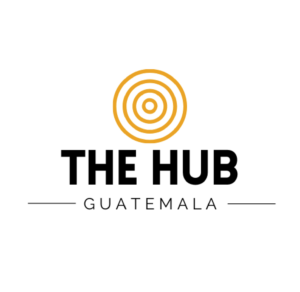
In 2018, the World Economic Forum assessed 137 countries for quality of math and science education, out of which Guatemala ranked 132. As a response, this project is to launch a life prep academy, The Hub, that will be tailored towards high school students who attend private schools in Guatemala City. The long-term objective of my project is to increase the quality and access of STEAM education in Guatemalan rural areas through Hubs in different communities. At The Hub, students will be able to develop and strengthen soft skills, such as public speaking, collaborative work, project-based learning, among others. Additionally, they will have the opportunity to design their post-graduation journey through Design Thinking. The Hub will host events, such as workshops on personal finances and talks by guest speakers. Belonging to The Hub will allow students to belong to a unique community, which will be significantly beneficial for their personal and professional development. Through The Hub’s website (my MVP), prospective customers will be able to learn about my venture’s value propositions and what services are offered.
Taylor Redmond – Creating Change: Foundations of Diversity, Equity & Inclusion
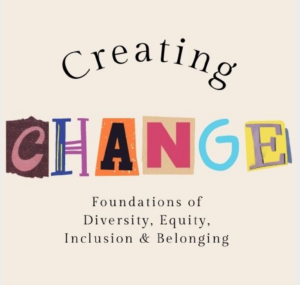
“Diversity is a fact, equity is a choice, inclusion is an action, belonging is an outcome.” Conversations around diversity, equity, and inclusion have become much more prevalent in the past few years. However, many of these discussions are framed from an individual point of view rather than a systemic one. It is imperative that we understand those around us from an intersectional lens, with an understanding of the systems they operate in, and how those systems affect their daily lives.
Through a 10-module course, adult learners will be introduced to foundational concepts in diversity, equity, and inclusion from a sociological perspective. The course will provide context about facets of identity, structural inequalities, unconscious bias, and actions learners can take to work towards greater levels of equity in the spaces where they live and work.
Shiqi Tao – Understanding and Developing Corporate Culture Course
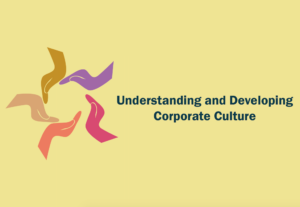
“Corporate culture is the only sustainable competitive advantage that is completely within the control of the entrepreneur. Develop a strong corporate culture first and foremost.”
Establishing a motivating and inspiring corporate culture can have many benefits for organizations, such as quickly building a collaborative and friendly team, improving productivity, and enhancing employees’ sense of belonging. This online course is an introduction to corporate culture building. The target audience will be those who seek to learn to build a corporate culture. Through 10 modules, students will learn how to establish, identify, and sustain a corporate culture. Students are provided with a variety of learning activities to engage them more in the course content, including discussion boards, corporate culture surveys, and culture activities design. Finally, students will be able to apply what they have learned in this course to produce a well-designed, practical corporate culture project.
Alisha Neblett Thompson – Intelligible Design: Teaching Pronunciation to Adult Language Learners
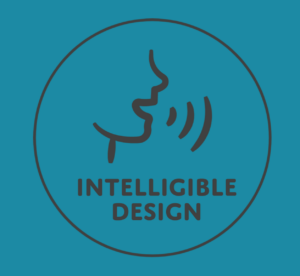
When preparing to teach English to adult language learners, instructors are taught second language acquisition theory, culturally responsive teaching practices, and pedagogy. The lessons on pedagogy focus on how to create dynamic lessons of the receptive skills, reading and listening, and the productive skills, listening and speaking. For the productive skills, instructors commonly struggle with incorporating pronunciation lessons into their lessons due to time and a lack of resources, but adult language learners want and need more pronunciation lessons because they want to be better understood in their English-speaking contexts.
For my final thesis project, I will create a course that helps instructors teach North American English pronunciation to their adult learners, as a stand-alone course or a speaking / conversation course. The course will consist of teaching instructors the fundamentals of North American English pronunciation, having instructors identify pronunciation errors, and submitting lesson plans for their teaching contexts. The course will emphasize the concept of “mutual intelligibility,” or the capability to be understood by a wide variety of English speakers rather than accent reduction. The course will utilize text, audio, quizzes, and online submissions to support instructors in creating pronunciation lessons that help international adults be more intelligible in English.